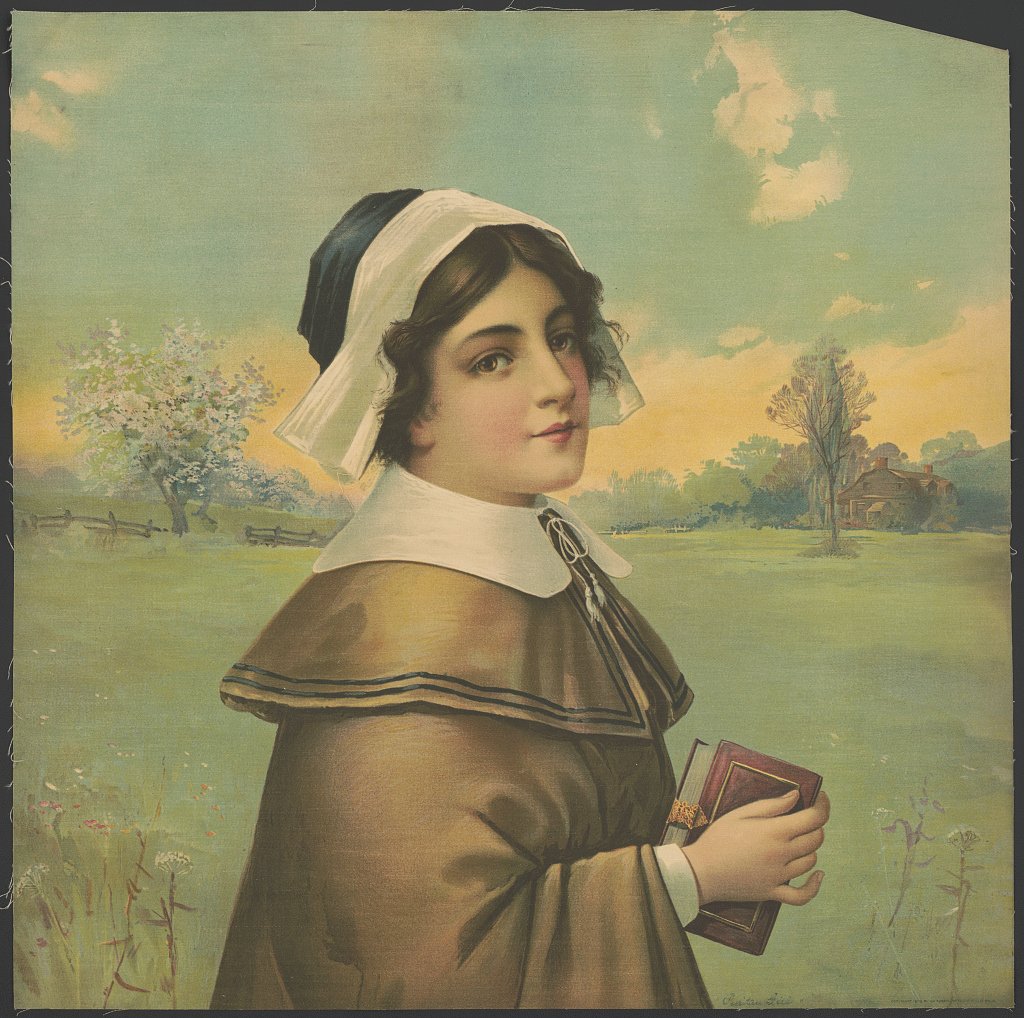
You probably haven’t thought about it before, but you have a lot of great grandparents. For example, if you go back 10 generations of ancestors, in that 10th generation alone, you have 1,024 8th great grandparents. And if you go back 2 more generations, you’ll have 4,096 of your 10th great grandparents. Your total number of ancestors in those 12 generations will be 8,190.
For genealogy buffs, that’s a lot of virtual flowers to send via Findagrave.com. But with 8,190 ancestors, you will probably find someone pretty interesting, and you’ll likely find someone who took part in some historic events. The difficulty is finding the records to track down all those people through public records.
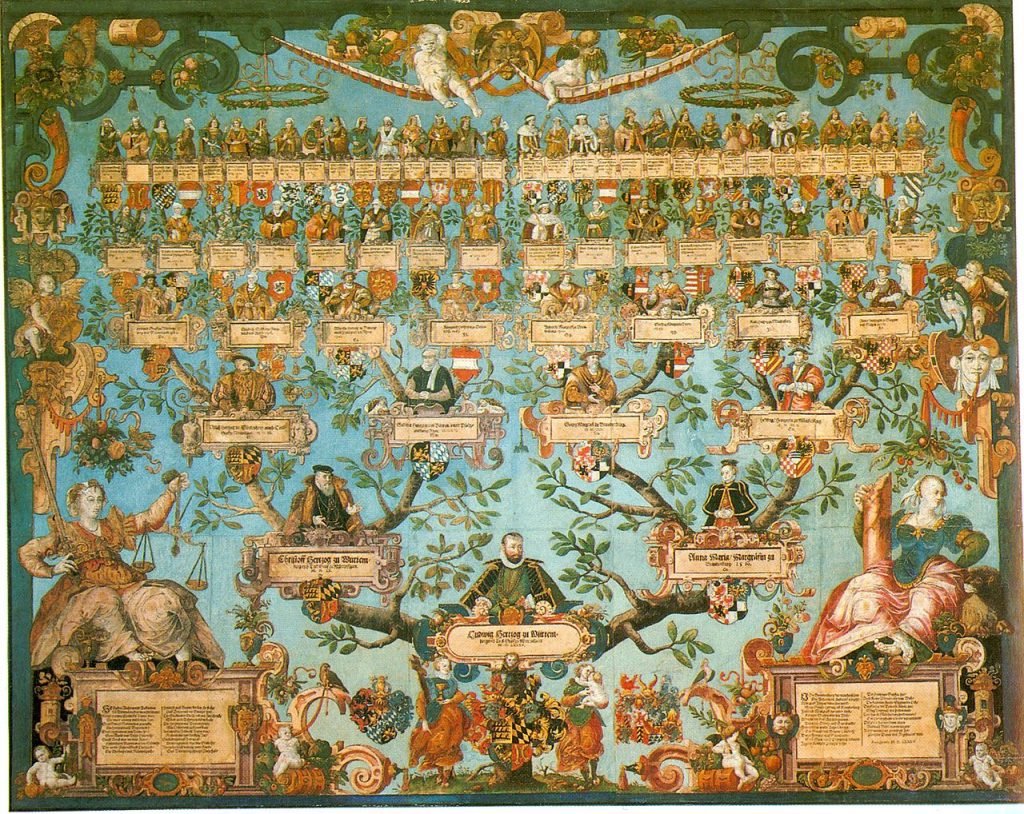
I’m fortunate that several of my more interesting ancestors landed in New England in the early days of the Pilgrim and Puritan migration to America. Most towns, churches, and colonies kept good records that have been preserved well over the centuries. Some of those towns kept such excellent records that I can read about my ancestors in well-sourced books like Sandwich: A Cape Cod Town and The History of Martha’s Vineyard.
With hundreds of great grandfathers on my father’s side, it is difficult to choose who to focus on. But there are several who led interesting lives as they helped establish new towns and cities in the American wilderness of the mid-1600s. Many came hoping to find better lives and more space and freedom to practice their religion. We begin with the history of those who fled to America in search of religious freedom and highlight one ancestor whose family helped blaze a trail for religious freedom and tolerance in their community.
The Great Puritan Migration
Most of what Americans learn about the history of the Pilgrims of Plymouth Colony and the Puritans of Massachusetts Bay Colony came during elementary school. So that 5th grade view of America is a kinder and gentler view of American history with supposed religious freedom and toleration.
It is true that many of the early settlers in New England left England because of the harsh regulation of religion under the king and his religion, the Church of England. Many people in England at the time resisted the official church and the idea of a king as church head. The two primary groups opposing the religious establishment were the Puritans, who wanted to reform the church of England, and the Pilgrims, who separated from the church by fleeing first to Holland in 1608 and then to Plymouth Colony in 1620. Fleeing the religious control in England would be a good thing for them, but ironically they did not establish religious freedom in New England. Instead, the colonial church leaders became the new oppressors.
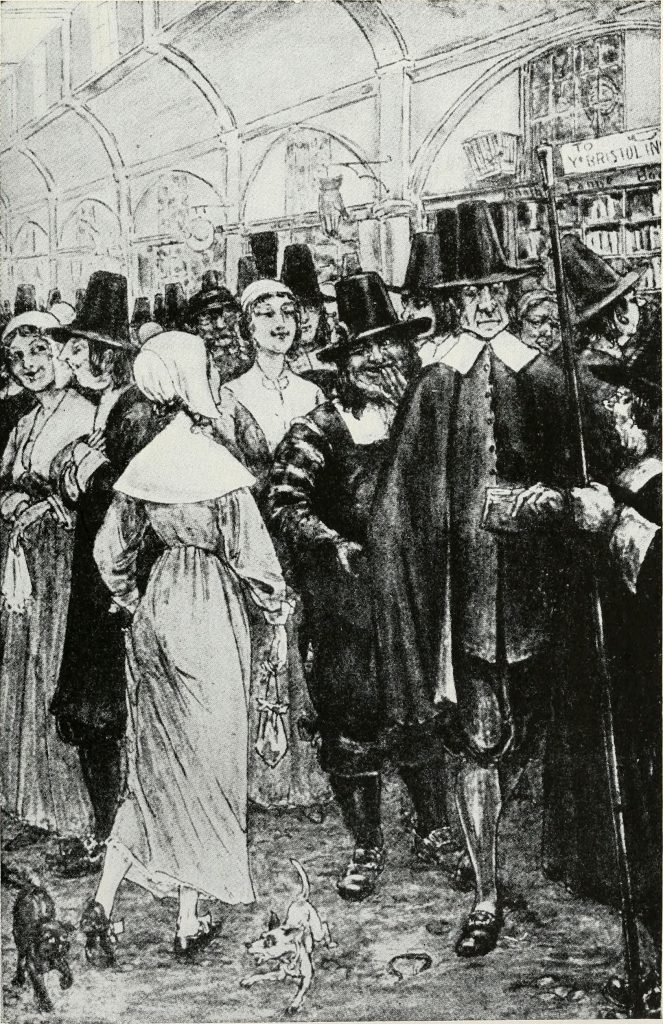
Religious Conflict Hits England and New England
The Pilgrims and Puritans who left England in the 1620s and 1630s were fortunate to get out before England began limiting departures in the 1640s. They also avoided the 10 years of civil war that began in 1642 between the royalists and the Puritans and resulted in the execution of King Charles I in 1649.
However, the new settlers in New England were not free from religious conflict or religious authoritarianism. In fact, the Massachusetts Bay Colony was in effect a theocracy run by a group of church leaders. Religious freedom was not practiced in the colony for many decades. You either followed the practices of the Puritan congregational church or you were banished, imprisoned, or hung. Plymouth Colony was also conservative, but the leadership was more secular based and the religious leaders were more tolerant than the Puritan theocracy. For example, in Plymouth Colony, marriage was a secular affair, not a religious one.
Roger Williams was the first to fight church orthodoxy when he arrived in 1631. In sermons and in his writing, he criticized the Puritan church in New England as being too connected to the Church of England. He tried preaching in Plymouth Colony for a year but also found it too restrictive. He ended up moving to establish a new colony in Providence, Rhode Island, where he went on to co-found the Baptist Church.
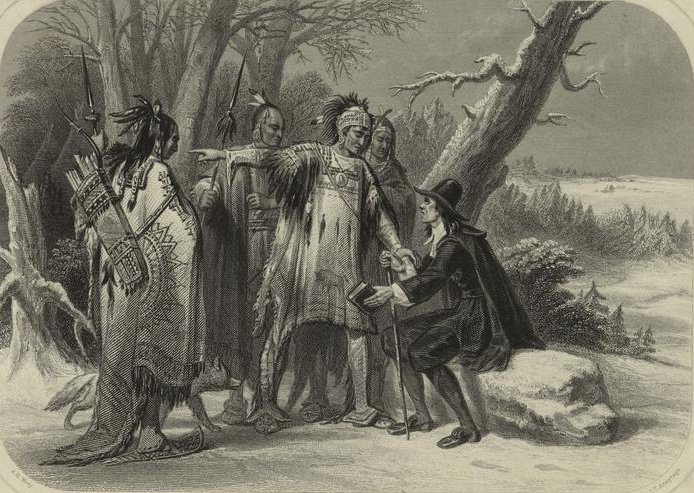
More theological conflict broke out from 1636 to 1638 between different groups of preachers and their followers, in what is now known as the Antinomian Controversy. The followers of the Free Grace Theology of Rev. John Cotton were critical of the mainstream Puritan ministers. One of the more famous of these followers was Anne Hutchinson, who led Bible study groups for women and men (the horror!) in her home. She and her brother-in-law, John Wheelwright, developed a large following and became more outspoken in the church community.
Among Anne's followers was my 8th great grandfather, Philip Sherman, and his family. Philip arrived in Boston in 1633 from Dedham, Essex County, England. He settled in Roxbury, MA and was one of at least 5 Sherman cousins and brothers who immigrated to New England. This included his brother Samuel, who arrived in 1636 and did not join his brother in Rhode Island but settled in Boston (before dying in 1644). Philip would have attended the regular Puritan churches on arrival, perhaps the same one that Anne Hutchinson's family attended when they arrived in September 1634.

Banishment from Massachusetts Bay Colony
Massachusetts Bay Governor John Winthrop eventually charged Anne Hutchinson with committing the “crime” of leading her Bible study with men in attendance. She also presented views and interpretations of the Bible that differed from the main Puritan pastors (among other "crimes"). After her religious and political trial, she was convicted, and banished from the colony in 1637. The authorities also warned Philip Sherman and the 60 other followers of Anne that they should also leave or face charges in court. Rather than be persecuted in Winthrop’s religious trials, they all left Massachusetts and settled in and around Portsmouth, Rhode Island, at the suggestion of Roger Williams. They were stripped of their weapons by the colonial authority and sent on their way because the “opinions and revelations of Mr. Wheelwright and Mrs. Hutchinson have seduced and led into dangerous errors many of the people here in New England.”

The group first moved to the area of today’s Portsmouth, Rhode Island after purchasing land from a local Native American tribe. (Anne and William Hutchinson later moved to New York). My 8x great-grandfather Phillip settled permanently in Portsmouth, raised a family, and became a pillar of the community as the town’s first secretary. Later, he was town clerk and on the town council. Perhaps his most historic achievement was taking part in signing the Portsmouth Compact that formed the first English settlement in America that asserted separation from both the civil and religious authority of England. They also set up a town government that was separate from religious authority. Some historians have called the Portsmouth Compact the first document to present principles of a true democracy in America, separate from the influence of European monarchs.

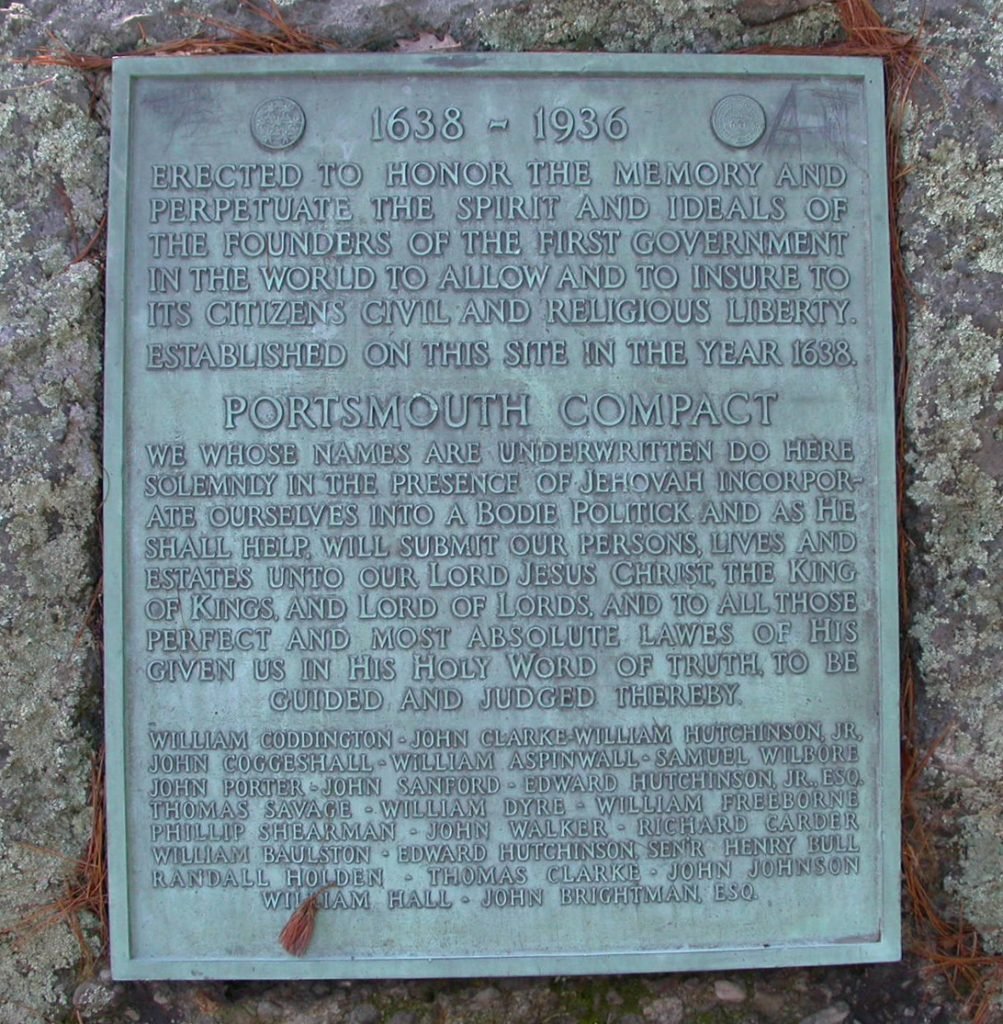
Philip Sherman spent 4 decades in public service, traits of leadership that perhaps trickled down to some of his ancestors, like Sir Winston Churchill. He also took part in founding one of the first Quaker communities in North America, along with William and Mary Dyer and others. Mary Dyer was also active in the Portsmouth town government at the same time as Philip, serving as Secretary from 1640 to 1647. Sadly, many Quakers were jailed in Puritan Massachusetts and some, like Mary Dyer, were executed. Mary and William were both "banished" to Portsmouth as Philip. But Mary was later banished again for becoming a Quaker and then going back to visit fellow Quakers in prison in Boston. Massachusetts also banned Quakers from sailing to the colony, with fines placed on captains and arriving Quakers either jailed or sent back to England.
It’s unclear how active Phillip was in the activities of the Quakers to push for freedom of religion in Massachusetts and Rhode Island. But we know he has several trailblazers and rebels among his thousands of descendants. Some of the more notable trailblazing (and rebellious) descendants have been Sir Winston Churchill, Janis Joplin, Susan B. Anthony, Marilyn Monroe, Billie Eilish, Jane Fonda, and Aaron Rodgers. (Another distant cousin descended from Philip is the guy who promised a "kinder and gentler" America a few years back, George H. W. Bush.)

The Religious Toleration and Religious Crime in My Family Tree
There are several church leaders in my father's side of the family tree. This includes some who not only ministered to their fellow settlers but also learned Native American languages in order to serve as missionaries to the Native Americans. While likely deeply religious, it doesn’t seem that any of my relatives were as severe as the religious leaders that hung Quakers in Boston and burned witches in Salem, MA.
In fact, the families of several of my ancestors moved out of the theocratic Massachusetts Bay Colony into Plymouth Colony in seek of a more tolerant community. But given the lack of religious toleration of the day (e.g. the religious civil war in England in the 1640s), some of those ancestors later fell afoul of religious leaders in Plymouth as well. In fact, several of my ancestors were fined for a variety of “sins,” such as harboring Quakers and skipping church too often. The colonial authorities even flogged one of my great grandfathers in the public square.
In our next installment we shall meet these ancestors, including the one who was flogged, and see the foundations they helped establish in the communities they helped found.

Thanks for reading. Until next time.
